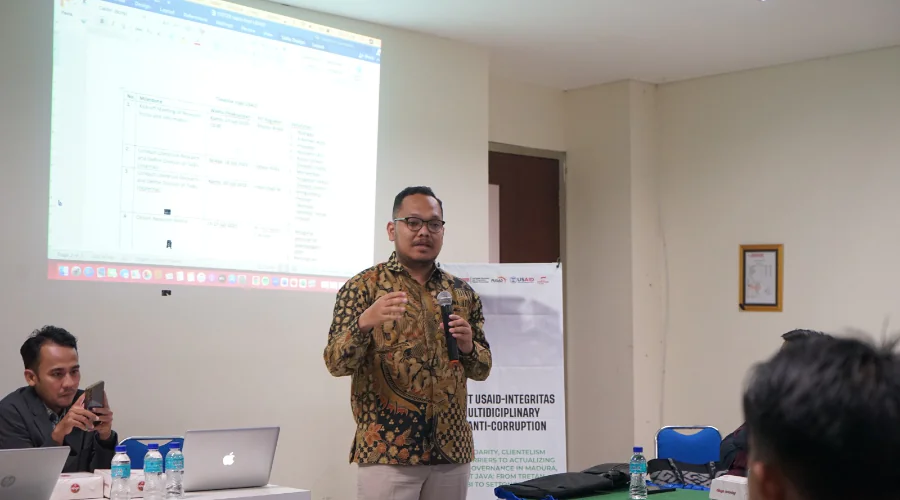
- 04 Sep
- 2023
Foto Satria Unggul Wicaksana Pakar Hukum UM Surabaya (Humas)
Former Convicts in Corruption Cases May Register as Candidates for the 2024 Election, This Says a Legal Expert at UM Surabaya
Application for case Number 87/PUU-XX/2022 submitted by Leonardo Siahaan, Suhartoyo mentions prospective members of the DPR, provincial DPRD and district/city DPRD who have previously served a crime with the threat of imprisonment of 5 (five) years or more, unless openly and honestly convey to the public concerned that former convicts as regulated in the norms of Article 240 paragraph (1) letter g of the Election Law are not in line with the spirit of the requirements for becoming a regional head candidate in the norms of Article 7 paragraph (2) letter g of the Regional Election Law, and the Constitutional Court has granted it.
Previously, the Supreme Court (MA) had decided on a trial with similar material, former convicts in corruption cases or corrupt convicts may nominate themselves as legislative candidates (candidates) in the 2024 elections thanks to the decision of the Supreme Court (MA) Number 30 P/HUM/2018. In this decision, the Supreme Court granted Lucianty's lawsuit regarding the ban on ex-corruption convicts running for election as regulated by Article 60 paragraph (1) of General Election Commission Regulation (PKPU) Number 7 of 2018. The Supreme Court wrote a number of views when lifting the ban. Some of the reasons include linking the ban to human rights (HAM) to reasons for overlapping regulations.
The General Election Commission (KPU) revealed that there are 52 former convicts (Convicts) registered as legislative candidates (Bacaleg) for the DPR RI in the 2024 elections.
In connection with the 2024 Election which is getting closer, therefore there are several notes relating to this polemic. Lecturer at the Faculty of Law, Muhammadiyah University of Surabaya (UMSurabaya) and Director of the Center for Anti-Corruption & Democracy Studies (PUSAD) UMSurabaya Satria Unggul Wicaksana gave his response.
First, corruption is an extraordinary crime, moreover the root problem in corruption cases is the abuse of power, of course this must be the basis for why it is difficult to restore trust in corrupt ex-convicts to return to contest in the 2024 elections and fill public positions.
"It is feared that there will be a comeback (rebound) to similar cases when former corrupt convicts fill public positions again," said Satria Monday (4/9/23)
Second, even though the right to vote is a basic right of citizens, this right is a right that can be limited, the Constitutional Court and Supreme Court should be able to explore a sense of justice in society, where this is stated in Article 5 of Law No. 24 of 2004 concerning judicial power, so that the decision is not beneficial jurisprudence for those who have been involved in corruption cases
Third, Satria stressed, there is a need for a time lag and giving additional punishments, especially in the Corruption Court related to the revocation of political rights, which are not fixed in year, but during the election period, so that former corrupt convicts are not directly involved in the political contestation agenda after being released from the process. punishment
Fourth, we hope for public participation in tracking and monitoring former corrupt convicts who have already nominated themselves in the 2024 elections so that they will not engage in corruption again in the future.
"Or instead refuse to elect them and choose legislative candidates who have a track record of integrity, no conflict of interest, and have a commitment and agenda to eradicate corruption to make Indonesia even better," stressed Satria.










(0) Comments